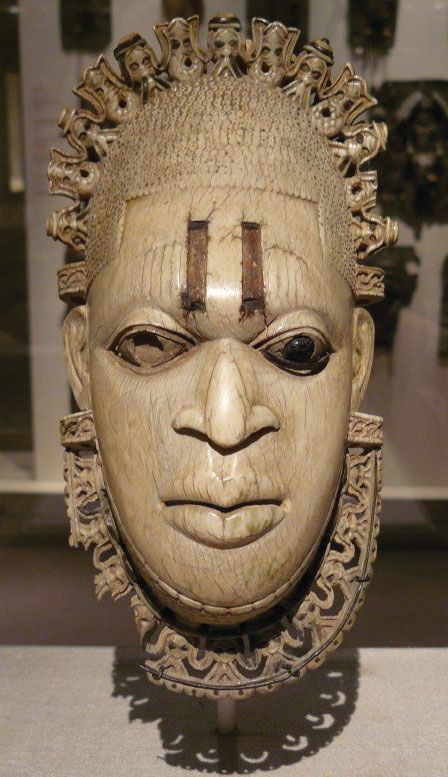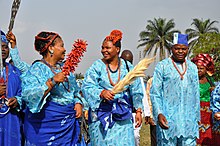Edo State
States Jan 03, 2025 Last Modified:Jan 04, 2025

Table of Contents
History and Culture of Edo State, Nigeria
Edo State, located in the southern region of Nigeria, is steeped in rich history and cultural heritage. Known as the “Heartbeat of the Nation,” the state plays a significant role in Nigeria’s historical narrative. Its capital, Benin City, was the seat of the powerful Benin Empire, which thrived from the 13th to the 19th centuries. This article delves into the fascinating history, culture, and key attractions of Edo State.
The Origin of Edo State

Edo State was created on August 27, 1991, when the former Bendel State was divided into Edo and Delta States. The state is named after the Edo people, who are its predominant ethnic group. Historically, the Edo people trace their ancestry to the ancient Kingdom of Benin, an empire renowned for its sophisticated political organization, artistic achievements, and military prowess.
The Benin Empire
The Benin Empire, which flourished between the 13th and 19th centuries, is one of the most remarkable aspects of Edo State’s history. The empire was ruled by the Oba (monarch), who held both spiritual and political authority. The Obas of Benin were instrumental in expanding the kingdom’s influence, establishing trade routes, and fostering diplomatic relations with European nations such as Portugal as early as the 15th century.

The Benin Empire is particularly famous for its art, especially the intricate bronze and ivory sculptures that adorned the royal palace. These artifacts, collectively known as the Benin Bronzes, are celebrated for their craftsmanship and are considered some of the finest examples of African art. Many of these treasures were looted during the British expedition of 1897 and are now displayed in museums worldwide, sparking ongoing debates about cultural restitution.
People and Culture
Edo State is home to diverse ethnic groups, including the Edo (Bini), Esan, Afemai, Owan, and Akoko-Edo peoples. Despite their differences, these groups share a common cultural heritage rooted in the traditions of the Benin Empire. The Edo language is widely spoken, along with various dialects specific to each ethnic group.
The state’s culture is deeply embedded in its festivals, music, and traditional practices. Some of the most notable festivals include the Igue Festival, which celebrates the Oba and seeks blessings for the land, and the Ewere Festival, marking the end of the annual harvest. Traditional dances, colorful attire, and local cuisine add to the vibrancy of Edo’s cultural identity.
Geography and Economy
Edo State covers an area of approximately 17,802 square kilometers and is bordered by Kogi, Delta, Ondo, and Ekiti states. Its landscape features a mix of rainforest, savannah, and wetlands, making it suitable for agriculture. The state is rich in natural resources, including crude oil, limestone, and forests, which contribute to its economy.
Agriculture remains a significant sector in Edo State, with crops such as cassava, yam, rice, and rubber being cultivated. Additionally, the state has a growing industrial sector, particularly in the areas of manufacturing and energy production.
Tourist Attractions
Edo State is a treasure trove of historical and cultural landmarks. Some of the most popular tourist attractions include:
- The Benin Moat: Also known as the “Walls of Benin,” this ancient earthwork is considered one of the largest man-made structures in the world and served as a defensive barrier for the Benin Empire.
- National Museum, Benin City: This museum showcases an extensive collection of artifacts from the Benin Empire, including bronze plaques, ceremonial objects, and ancient weaponry.
- Emotan Statue: A monument dedicated to Emotan, a legendary market woman who played a crucial role in the history of the Benin Kingdom.
- Okomu National Park: A protected area of rainforest that is home to diverse wildlife, including elephants, chimpanzees, and rare bird species.
Modern Edo State
Today, Edo State is a hub of education, commerce, and culture. The University of Benin, one of Nigeria’s foremost tertiary institutions, is located in the state capital. Benin City is also known for its thriving art scene, with contemporary artists drawing inspiration from the rich traditions of the Benin Empire.
The state government has been working to preserve and promote its cultural heritage through various initiatives, including the Edo Museum of West African Art (EMOWAA), a planned museum dedicated to showcasing the history and artistry of the Benin Kingdom.
Conclusion
Edo State is a land of historical significance and cultural richness. From the grandeur of the Benin Empire to its modern-day advancements, the state continues to be a beacon of Nigeria’s heritage. Whether you’re a history enthusiast, a lover of art, or a traveler seeking new experiences, Edo State offers a unique glimpse into the past and a vibrant present.
The legacy of the Edo people and their contributions to art, governance, and culture make this state an essential part of Nigeria’s story. By preserving its traditions and embracing progress, Edo State remains a proud custodian of its illustrious history.
